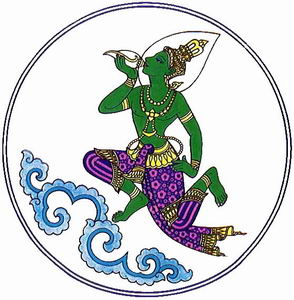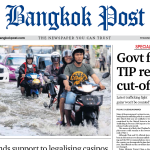
The Government Public Relations Department, Office of the Prime Minister on 22 April 2015:
A report from the Ministry of Foreign Affairs stated that the European Union (EU) on 21 April 2015 issued a yellow card to Thailand. Although the yellow card does not introduce trade sanctions on European imports of Thai fishery products, it has been a source of grave discouragement that the EU chose to ignore the very earnest efforts of the past six months by the Royal Thai Government in addressing all issues which once were deemed the causes of illegal, unreported, and unregulated (IUU) fishing.
According to the statement, Thailand is deeply disappointed at the EU’s decision. The Royal Thai Government is now firmly seizing the issue. It matches words with deeds by structural changes, law amendments and passage of new laws, prosecution, and preventive measures as major instruments.
More importantly, the statement said that the EU’s decision reflects its failure to recognize the longstanding cooperation between Thailand and the EU’s competent authorities.
Thailand calls on the EU to take into account Thailand’s substantial and tangible progress in combating IUU fishing. The EU’s assessment must be transparent, fair, non-discriminatory, and based on accurate facts and latest developments.
Thailand will continue to cooperate with the EU to combat IUU activities and promote sustainable fishing. In light of the progress made and the Thai government’s genuine intention, it urges the EU to remove the yellow card at the earliest opportunity.
The Royal Thai Government takes allegations of IUU fishing very seriously, and has done so for years. Efforts to tackle illegal fishing and improve the sustainable management of marine and aquaculture environment are a top political priority. These efforts will continue and are led by Thai officials at the highest levels of government.
Earlier, the Ministry reported that an improved monitoring and surveillance system in the fishery industry would be implemented. Measures include mandatory installation of vessel monitoring systems (VMS) in 7,740 large-scale fishing vessels to be completed this June, along with regular random inspection of fishing vessels. A Port-in/Port-out surveillance will help monitor the labor welfare and develop a traceability system of catch throughout the supply chain.
Source: http://thailand.prd.go.th/ewt_news.php?nid=1638&filename=index




